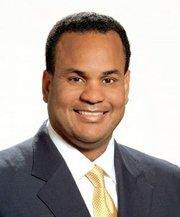The Securities Commission has warned Bahamas-based unrestricted investment fund administrators (UIFAs), in particular, to expect increased regulatory vigilance.
The regualtor’s recently-appointed executive director, Dave Smith, told an industry briefing it wanted to equip industry leaders with a better understanding of concerns coming out of the Securities Commission's surveillance of the secyor and regulatory developments it foresees impacting them.
Newly-appointed minister of state for finance, Michael Halkitis, said the briefing came at a crucial time.
“This briefing comes at a time when the financial services sector of the Bahamas finalises preparations for the World Bank's and International Monetary Fund's (IMF) Financial Sector Assessment, scheduled to commence in July,” Mr Halkitis said. “The upcoming visit serves as a reminder of the ever-evolving and competitive nature of the industry, and the regulatory landscape.”
This year's briefing focused on the investment funds industry, an important component of the financial services sector, with 713 licensed funds and 65 registered investment fund administrators operating in or from the Bahamas at 31 December, 2011.
Investment fund administrators are categorised as Unrestricted, Restricted or Exempted Investment Fund Administrators under the governing legislation - the Investment Funds Act 2003.
A major focus at the briefing was the Unrestricted Investment Fund Administrator (UIFA) category, as they carry unique risk issues, according to Mechelle Martinborough, the Securities Commission's legal counsel.
Licensed UIFAs have authority under the Act to license almost all categories of funds, Ms Martinborough said, as they hold a statutory, rather than a delegated, authority from the Securities Commission.
“This independent authority also brings with it a wholly separate and independent exposure to liability,” Ms Martinborough said. “In the circumstances, the Commission's oversight of unrestricted administrators will be heightened.”
She said the increased oversight is likely to focus on the overall structure and operational issues relating to UIFAs, including the appropriateness of financial resources, human resources, expertise, facilities, technology and infrastructure, as well as the adequacy of policies and procedures.
Denise O'Brien, manager of the Inspections Department at the Securities Commission, said that over the five years between 2007 and 2011, about 72 per cent of registered Unrestricted Investment Fund Administrators, and around 42 per cent of Restricted Investment Fund Administrators, underwent on-site examinations conducted by the regulator.
Ms O'Brien reminded participants that breaches may result in more frequent examinations or reclassification of their license, and urged thoroughness and completeness in compliance.
Narissa Gaitor, assistant manager of the Securities Commission's market surveillance department, said the fulfillment of standing and material change reporting obligations by registrants and licensees is critical to its proper function.
The specific breaches it had observed closely mirrored those encountered by the inspections department, Ms Gaitor said. She added that while reasons are presented for late filing issues, improved compliance levels are desired.
Securities Commission consultant, Denise-Hinds Jordan, gave an overview of its ongoing and upcoming initiatives. Among them is a proposed new schedule of fees for registrants under the IFA 2003.
Ms Hinds-Jordan said the new fee structure, to come into effect on 1 January, 2013, is a necessary step to improving the independence of the Commission as a regulatory body. Some funding for the regulator currently comes via Government subvention.
She said operational independence and the resources to undertake regulatory oversight by the Securities Commissions is a key tenet of the International Organisation of Securities Commissions (IOSCO), detailed in its Principles 2 and 3.
The proposed gross increase in fees averages around 30 per cent, said Ms Hinds-Jordan, who said if adjusted for inflation since the last fee change some 10 years ago, represented a real increase of around 12 per cent. She added that this increase would result in fees that are still lower than competitors', and presents a real growth opportunity for the industry.





Comments
Use the comment form below to begin a discussion about this content.
Sign in to comment
OpenID